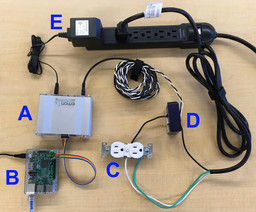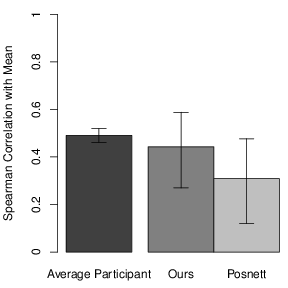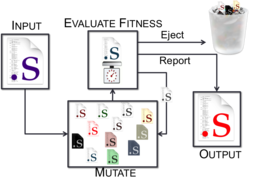Conference |
PG
(21%)
|
Jonathan Dorn, Connelly Barnes, Jason Lawrence, Westley Weimer.
Towards Automatic Band-Limited Procedural Shaders,
Pacific Graphics. 2015.
[PDF]
[video (160 MB)]
[supplemental material]
[slides (17 MB)]
|
ESEC/FSE
(25%)
|
Ermira Daka, Jose Campos, Gordon Fraser, Jonathan Dorn, Westley Weimer.
Modeling Readability to Improve Unit Tests,
Foundations of Software Engineering (ESEC/FSE). 2015.
[PDF]
ACM SIGSOFT Distinguished Paper Award
|
|
SSBSE
|
Ermira Daka, Jose Campos, Jonathan Dorn, Gordon Fraser, Westley Weimer.
Generating Readable Unit Tests for Guava, Symposium
on Search Based Software Engineering (SSBSE). 2015.
[PDF]
|
ASPLOS
(23%)
|
Eric Schulte, Jonathan Dorn, Stephen Harding, Stephanie Forrest,
Westley Weimer. Post-compiler Software Optimization for
Reducing Energy, Architectural Support for Programming
Languages and Operating Systems (ASPLOS). 2014.
[PDF]
|
Journal |
|
TSE
|
Jonathan Dorn, Jeremy Lacomis, Westley Weimer, Stephanie Forrest.
Automatically Exploring Tradeoffs Between Software Output Fidelity and Energy Costs
Transactions on Software Engineering. 45(3): 219-236. 2019.
[PDF]
|
Workshop |
|
HotPar
|
Chris Gregg, Jonathan Dorn, Kim Hazelwood, Kevin Skadron.
Fine-Grained Resource Sharing for Concurrent GPGPU
Kernels, 4th USENIX Workshop on Hot Topics in Parallelism
(HotPar'12). 2012.
[PDF]
|
Book Chapter |
|
Jeremy Lacomis, Jonathan Dorn, Westley Weimer, Stephanie Forrest.
Automatically Reducing Energy Consumption of Software.
The Energetics of Computing in Life and Machines, 2019.
[PDF]
|





